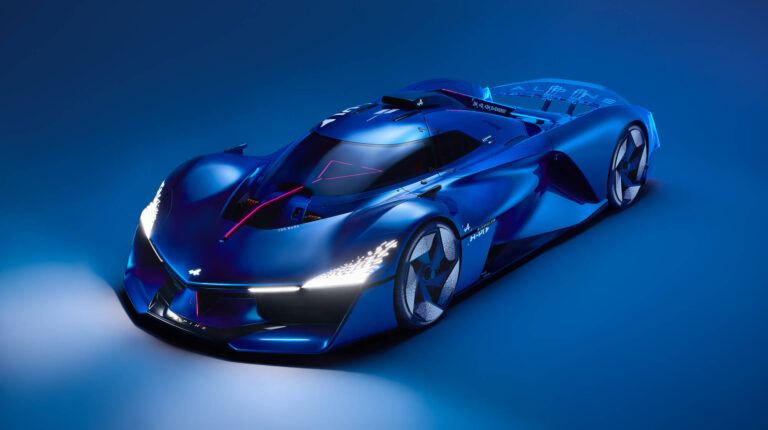Alpine has unveiled the functional version of its Alpenglow, first shown as a concept at the Paris Motor Show in 2022. It was rolled out at the Spa round of the World Endurance Championship, where the company runs two cars in the Le Mans Hypercar class. Alpine has expressed a desire to compete with a hydrogen-fueled machine at Le Mans 24 Hours in June, once the organizing bodies finally confirm a rule set and introduction date, likely to be 2026 or 2027.
The Alpenglow is based on an LMP3 chassis while the engine has been developed in conjunction with Oreca, which has been working on an H2 ICE project since 2022, originally intended to be used in the Dakar Rally. That project also had input from H2 specialists FEV. The 2-liter I4 produces 250kW and relies on direct injection of gaseous hydrogen, stored in three 55l tanks in the chassis. A water injection system is used for combustion moderation and to help reduce NOx emissions.
Speaking to Professional Motorsport World, Francois Champod, vehicles director at Alpine Racing, said, “The engine runs to 7,000rpm and torque and power are comparable to that of a gasoline engine. However, the range is not, but we are able to achieve around 100km (62 miles) of running on track without refuelling.
“For this first car, we have chosen gaseous hydrogen; taking the hydrogen from the tanks sees us going from 700bar to 40bar, which is the injection pressure, so you can imagine the temperature drop that occurs there. The biggest challenge with hydrogen is abnormal combustion, so we have to control the temperatures and homogeneity of the mixture very closely.”
The Hy4 is the first iteration of the H2 concept, however, work is already underway on new developments, including the use of liquid hydrogen and, for the next iteration of the car, a bespoke, V6 engine. The latter is already running on the dyno and is expected to be revealed later in 2024.



